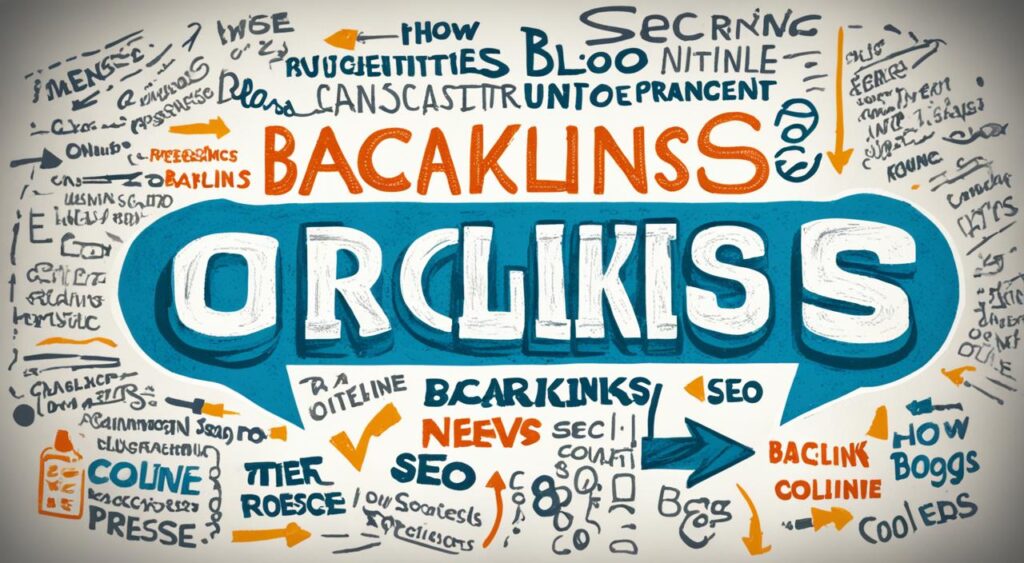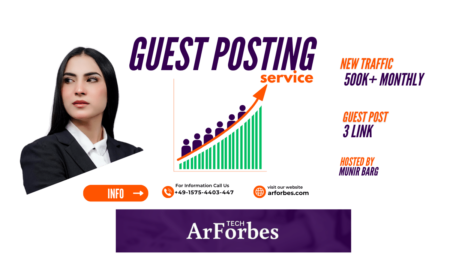Unveiling the intricacies of a robust SEO strategy often leads us to one foundational element that speaks volumes about a site’s credibility – and that’s the backlink meaning. In the digital realm, backlinks not just serve as navigational threads interweaving the World Wide Web, but also as endorsements elevating website authority and online visibility.
A single hyperlink from a respected source can be the turning point for a website, marking its leap from obscurity to a notable online presence. But what exactly is a backlink in the context of a multifaceted SEO strategy? It’s the digital nod of approval that search engines, like chaperones at a grand ball, use to decide who gets the spotlight.
As we embark on this exploration of backlinks’ significance, prepare to delve deep into how these connections not only propel your site’s rank but also fortify its reputation amidst the vast internet landscape. Join us as we decode the power of backlinks and their pivotal role in charting the course of your digital success.
Table of Contents
Exploring the Backlink Meaning in Today’s SEO Landscape
Within the vast expanse of SEO, understanding what is a backlink remains a fundamental element. As we dissect the backlink definition, we uncover the strategic layers that make it a cornerstone of digital visibility and search engine rankings.
Defining the Concept of a Backlink in SEO
A backlink can be likened to a digital nod of approval; it’s when one website references another via a hyperlink. However, not all backlinks are created equal. In the realm of SEO, the distinction between dofollow and nofollow links plays a crucial role in how search engines gauge the influence of a site. Dofollow links serve as direct endorsements, signaling search algorithms to consider the link for ranking influence, while nofollow links are a gentle nudge without the ranking power.
The Evolution and Current Relevance of Backlinks
The evolution of backlinking is a tale of adaptation and refinement. Early practices like link farms have given way to quality-centric updates such as Google Penguin, shifting the balance towards rewarding genuine authority and penalizing manipulative tactics.
| SEO Era | Backlinking Practice | Impact on SEO |
|---|---|---|
| Early 2000s | Link Farms, Wide-scale Directories | High impact with minimal focus on relevance or quality |
| Post-Penguin | Content Marketing, Relationship Building | Quality and relevance-driven impact, with penalties for manipulation |
Today, the relevance of backlinks remains steadfast within SEO, though the focus is on authenticity, relevance, and the organic growth of a site’s link profile. Ultimately, understanding what is a backlink is not merely about recognizing its existence but grasping its ongoing relevance in a highly dynamic SEO landscape.
The Different Types of Backlinks and Their Functions
Backlinks, often viewed as the backbone of an effective SEO strategy, are critical for boosting a site’s credibility and online visibility. Various types of backlinks exist, each serving unique functions within the digital landscape. Their contribution is so significant that understanding the importance of backlinks cannot be overstated when seeking to strengthen your website’s standing in search engine results.
The backbone of effective SEO lies in a rich tapestry of backlinks, each class carrying its own weight and purpose. They range from the coveted editorial backlinks, birthed from high-quality content, to the utilitarian comment section links found peppered across the cyberspace. Let’s unveil these varieties:
- Editorial Backlinks: These are the result of high-caliber content that others reference naturally due to its authenticity and value.
- Guest Blogging Backlinks: Acquired when a website features your content, affording you credibility through association and direct access to their audience.
- Comment Backlinks: Spawned from your participation in discussions relevant to your industry, these can be less authoritative but influence visibility.
- Forum Backlinks: They emerge from contribution to community conversations, which, when done judiciously, foster professional respect and niche authority.
In light of this diversity, the creation of a robust link profile embodies a strategic exercise of discernment, ensuring a broad yet coherent array of dignified digital connections. For a detailed look at how each backlink type functions within an SEO strategy, view the table below:
| Type of Backlink | Function | SEO Benefit |
|---|---|---|
| Editorial | Signals trust and authority through organic citation | Elevates domain authority and trustworthiness |
| Guest Blogging | Expands reach and builds professional relationships | Increases audience base and enhances relevance |
| Comment | Promotes engagement and community presence | Improves visibility and niche involvement |
| Forum | Establishes expertise and peer acknowledgment | Boosts credibility and potential for peer referrals |
Recognizing the importance of backlinks is tantamount to acknowledging the intricate dynamics of digital marketing. Aligning with search engines’ appetite for quality, these types of backlinks serve as potent signals that collectively establish a site’s footprint, echoing its resonance across the vast internet expanse.
How the Quality of Backlinks Influences Your SEO
As the landscape of SEO continues to morph, a major constant is the influential role that backlinks play. Not all backlinks are created equal, and understanding the difference between high-quality backlinks and low-quality ones can prove to be a significant asset in boosting your website’s visibility and credibility.
Criteria for Assessing High-Quality Backlinks
Acquiring high-quality backlinks is a surefire way to climb the SEO ranks, but discerning their value requires a careful look at several factors. These include, but are not limited to, the domain authority of the linking website, the relevancy of the content to your niche, and the trustworthiness and ethical practices of the site providing the link. A trustworthy backlink signals to search engines that your content is also credible, thereby elevating your search ranking. Let’s dive into an analysis of the attributes that characterize premium backlinks.
| Quality Indicator | Description | Benefits |
|---|---|---|
| Domain Authority (DA) | A measure of a website’s reputability and influence on a scale from 1 to 100. | A backlink from a high DA site can enhance your own site’s authority. |
| Content Relevancy | The linking page’s topic aligns closely with your website’s content. | Increases the likelihood of your content satisfying the user’s search intent. |
| Link Trustworthiness | The site providing the link is respected and follows ethical SEO practices. | Adds credibility to your website, encouraging more organic traffic. |
| Anchor Text Relevance | The clickable text in the hyperlink is pertinent to your content. | Improves context for search engines, aiding in better SERP positioning. |
Understanding how to get backlinks that boast these qualities is fundamental. It involves creating top-tier content and networking with authoritative domains to encourage natural link building.
Understanding the Impact of Low-Quality Links
In contrast, low-quality backlinks can tarnish your SEO efforts, possibly leading to penalties from search engines. Such unsavory links often originate from spammy sites, have little to no relevance to your content, or come from sites participating in deceptive practices. It is paramount to regularly monitor your backlink profile to identify and disavow these toxic links.
Equally, the benefits of backlinks from trusted sources cannot be overstated as they are instrumental in establishing a website’s authority and fostering trust with both users and search engines. Armed with the knowledge of how to discern the quality and pursue beneficial backlinks, businesses can significantly enhance their SEO strategy.
The Importance of Backlinks in Your Overall SEO Strategy
Delving into the realm of search engine optimization reveals the backlink meaning as a fundamental concept that underpins much of SEO success. At its core, a backlink is a digital nod of approval, acting as an online recommendation that has the potential to escalate your website’s reputation and visibility on search engine results pages (SERPs). The benefits of backlinks are manifold, influencing a range of factors from your site’s credibility to its traffic levels.
Understanding the significance of backlinks in SEO is pivotal, as they are not just mere links but endorsements that affirm the quality of your content. They have a profound impact on how search engines, particularly Google, gauge the authority and relevance of your website. A robust backlink profile is a clear indicator to search algorithms that your website is a valuable resource worth surfacing on SERPs.
“The currency of the web is not money; it’s trust. Backlinks are one of the strongest signals to search engines that others vouch for your content.”
The direct benefits of backlinks include increased referral traffic—a clear advantage for any website looking to boost its audience. This, in turn, can lead to higher conversion rates and more opportunities for revenue generation. Meanwhile, the indirect benefits, such as enhanced domain authority, bolster your overall SEO strategy, as they contribute positively toward your ranking potential.
- Data-driven insights into user behavior and preferences
- Opportunities for network expansion through link-building relationships
- Strengthening the site’s position as an industry thought leader
However, not all backlinks are created equal, and discerning the nuances of backlink meaning involves recognizing the attributes that differentiate a high-value backlink from a less beneficial one. This understanding is crucial for any digital marketer or business owner focused on long-term, sustainable online growth.

In sum, the creation and nurturing of a healthy backlink profile are indispensable for any comprehensive SEO strategy. It is more than just an exercise in link accumulation; it’s about crafting a narrative of reliability and worth around your website that search engines and users alike will recognize and reward.
Strategies for Acquiring Valuable Backlinks Organically
Creating a sustainable backlink profile is crucial for SEO success. Gone are the days of spammy link building tactics; instead, nurturing organic backlinks through content creation and outreach has taken the forefront. Below, we explore concrete actions you can take to naturally enhance your website’s backlink portfolio.
Content Creation and Marketing for Organic Backlink Growth
At the heart of organic link building is content creation. High-quality, informative, and engaging content acts as a magnet for backlinks. By focusing on the value your content provides, you can encourage other websites to link to it as a resource.
- Create in-depth guides and how-tos that offer real insight into your niche
- Develop original research, surveys, or studies that provide new data
- Craft compelling infographics or videos that encapsulate key information in an easily shareable format
- Continuously update content to keep it relevant, which can re-ignite interest and sharing
Promotion is just as important as the creation itself. Use social media, email newsletters, and your personal network to spread the word about your latest content.
Outreach and Relationship Building in Link Acquisition
While creating stellar content is one side of the coin, the other is outreach and relationship building. It involves connecting with influencers, bloggers, and webmasters within your industry to foster relationships that can lead to organic backlinks.
- Identify industry influencers and engage with them via social platforms or email
- Guest post on reputable sites to introduce your content to new audiences
- Participate in community discussions and forums to showcase your expertise
- Utilize tools like HARO (Help a Reporter Out) to connect with journalists looking for expert opinions
It’s vital to approach outreach with a mindset of mutual benefit. Offer value through your interactions and content, and view link building as a long-term relationship rather than a quick win.
| Strategy | Benefits | Best Practices |
|---|---|---|
| Content Marketing | Attracts organic backlinks naturally | Focus on quality and relevancy |
| Guest Blogging | Exposes content to new audiences | Target reputable sites within the niche |
| Outreach | Builds industry relationships | Personalize communication and offer value |
| Community Engagement | Establishes authority | Be consistent and helpful |
Remember, acquiring how to get backlinks is a marathon, not a sprint. By focusing on organic backlinks through thoughtful content creation and outreach, you’ll cultivate a backlink profile that can withstand the test of time and algorithm updates.
Mastering Backlink Analysis to Refine Your SEO Efforts
As the digital landscape becomes increasingly competitive, the significance of a well-rounded SEO strategy becomes irrefutable. At the heart of this, effective backlink analysis is a critical component, providing insight into the health and performance of your site’s link profile. Engaging in comprehensive analysis not only reveals the benefits of backlinks but also uncovers areas where your backlink strategy may require enhancements. By understanding the intricate details of your backlinks—such as source, anchor text, and the authority of linking domains—you can make informed decisions to bolster your online standing.
To initiate a thorough backlink analysis, SEO tools such as Ahrefs, Moz, and SEMrush offer a granular look into your linking domain’s credibility. These platforms illuminate the connective tissue of the internet as it relates to your site, allowing you to discern valuable partnerships from ones that might be hampering your progress. Metrics such as domain rating and the number of follow vs. nofollow links paint a clear picture of where your backlink strategy stands—at its zenith or in need of recalibration.
Gleaning actionable insights from backlink analysis enables you to refine your SEO blueprint for amplified effectiveness. Identifying and disavowing toxic links, recognizing patterns in successful backlinking campaigns, and setting benchmarks against competitors’ profiles are all part of a continuous process that helps safeguard and elevate your site’s authority. By mastering these evaluative techniques, you pave the way towards a resilient and future-proof SEO stance—one that can adapt and thrive regardless of search engine algorithm shifts.
FAQ
What is the meaning of a backlink in an SEO strategy?
In the realm of SEO, a backlink is considered a “vote of confidence” from one website to another, signaling to search engines that your content is valuable and trustworthy. This enhances your website’s visibility and authority on the Internet, influencing its ranking in search results.
How have backlinks evolved in the SEO landscape?
Backlinks have transitioned from being mere numbers in the form of link farms to quality-focused endorsements with the advent of sophisticated algorithms like Google’s Penguin update. This evolution reflects the shift towards prioritizing valuable, relevant links over sheer quantity.
What different types of backlinks exist and what are their functions?
There are several types of backlinks, such as editorial backlinks, guest blogging links, comment backlinks, and forum backlinks. Each carries a different weight in SEO and serves various functions from exhibiting endorsement (editorial) to indicating community engagement (comments and forums).
What are the criteria for assessing high-quality backlinks?
High-quality backlinks usually come from reputable sources with high domain authority, are relevant to your content, and are trusted by the search engines. They should ideally be organic, dofollow links that naturally integrate into the content.
Why do backlinks matter in an SEO strategy?
Backlinks are crucial as they directly contribute to your site’s domain authority and can improve rankings. Indirectly, they bring referral traffic and enhance your online reputation, making them an integral component of a comprehensive SEO strategy.
How can I organically grow my site’s backlink profile?
Creating high-quality, shareable content is key to organically attracting backlinks. Pairing this content with effective outreach and relationship-building with industry peers and influencers can further boost your site’s backlink profile.
What is backlink analysis and why is it important?
Backlink analysis involves reviewing the backlinks pointing to your website to evaluate their quality and relevance. It helps in identifying and removing potentially harmful links while also uncovering opportunities for gaining more valuable backlinks, refining your overall SEO efforts.












1 Comment
I just like the helpful information you provide in your articles